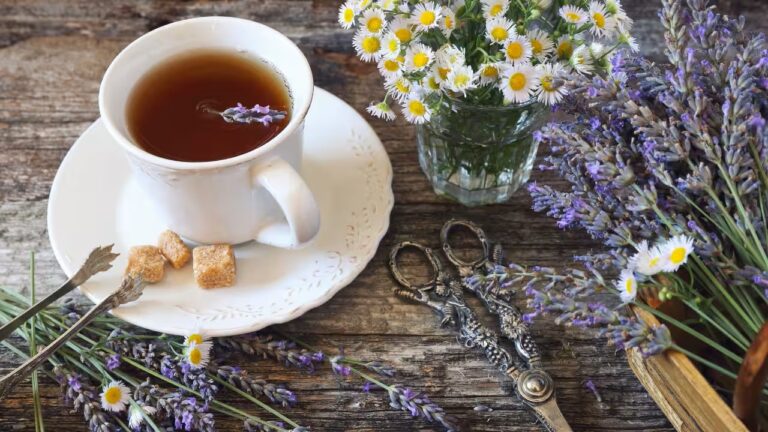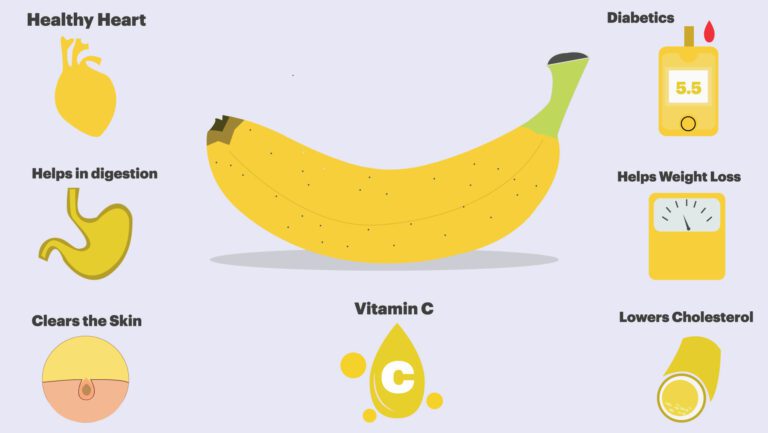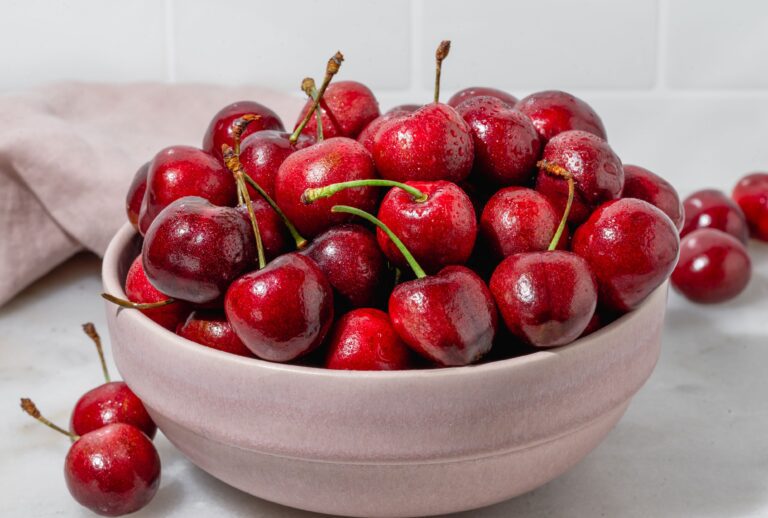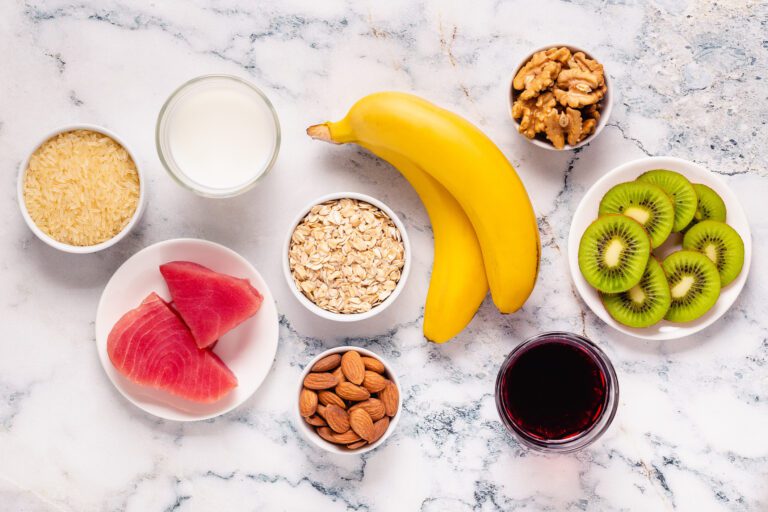Valerian Root Tea: A Natural Sleep Aid Backed by Science

If you’re searching for a stronger natural remedy to fall asleep faster and stay asleep longer, valerian root tea might be your ideal nighttime companion. Used for centuries in herbal medicine, valerian root is often called “nature’s Valium” for its powerful calming and sedative properties.
In this article, we’ll explore what valerian root is, how it works to support deep and restful sleep, its additional benefits, how to brew it properly, and what to know before adding it to your nighttime ritual.
What Is Valerian Root?
Valerian (Valeriana officinalis) is a perennial plant native to Europe and parts of Asia. The root of the plant is where the magic lies—it’s used in herbal teas, tinctures, capsules, and extracts to promote relaxation and improve sleep.
Valerian root has a strong, earthy smell, often compared to wet socks or cheese. While its scent may be off-putting to some, its effects on the nervous system make it one of the most effective herbal remedies for sleep and anxiety.
How Valerian Root Tea Helps You Sleep
Valerian works in several ways to relax the nervous system and promote sleep:
1. Boosts GABA Levels Naturally
Valerian root increases the levels of gamma-aminobutyric acid (GABA) in the brain—a neurotransmitter that slows brain activity and helps you relax. This is similar to how prescription sedatives like benzodiazepines work, but without the same risk of dependency.
2. Reduces the Time It Takes to Fall Asleep
Clinical studies have shown that valerian can reduce the time it takes to fall asleep, especially in people with mild insomnia or high stress levels. A review of multiple studies published in The American Journal of Medicine found that valerian improved sleep quality in a significant number of participants.
3. Improves Sleep Quality and Duration
Valerian doesn’t just help you fall asleep—it also helps you stay asleep. Many people report fewer awakenings during the night and a more refreshed feeling in the morning after drinking valerian root tea.
Other Health Benefits of Valerian Root Tea
In addition to supporting better sleep, valerian root tea offers several other health benefits:
- Reduces Anxiety and Tension: Acts as a natural anxiolytic, helping reduce symptoms of stress and generalized anxiety.
- Eases Muscle Tension and Cramps: Mild muscle relaxant properties may help relieve menstrual cramps or tight muscles before bed.
- Supports Heart Health: Calming the nervous system can also help regulate heart rate and reduce blood pressure spikes due to stress.
- Improves Mental Clarity: Some people report waking up feeling more mentally refreshed due to fewer interruptions in sleep cycles.
How to Brew Valerian Root Tea
Valerian tea is typically made using dried valerian root, available in loose leaf form or pre-packaged tea bags.
Ingredients:
- 1 teaspoon of dried valerian root (or 1 tea bag)
- 1 cup of freshly boiled water
- Optional: honey, lemon, or peppermint to mask the strong flavor
Instructions:
- Place the valerian root in a tea infuser or mug.
- Pour hot (but not boiling) water over it—around 90°C (194°F).
- Cover and steep for 10–15 minutes to extract the active compounds.
- Strain if needed, add sweetener or peppermint, and enjoy.
Tip: Because valerian root has a strong, bitter taste, many people mix it with milder herbs like chamomile, lemon balm, or lavender.
When to Drink Valerian Root Tea
For best results, drink valerian tea 30 to 60 minutes before bedtime. The effects may take some time to kick in and may become more noticeable with consistent use over several nights.
Avoid drinking it earlier in the day, as it can cause drowsiness for some people.
Valerian Root Tea Bedtime Routine (How to Use It Effectively)
Creating a calming bedtime ritual enhances valerian tea’s sedative effects. Here’s a suggested routine:
- Unwind & Disconnect: Put away screens and reduce light exposure.
- Brew Your Tea: Prepare valerian tea and add soothing herbs like chamomile if desired.
- Mindful Moments: Sip slowly in a quiet space while practicing deep breathing.
- Stretch or Meditate: Gentle yoga or a 5-minute meditation can ease muscle tension and quiet the mind.
- Lights Out: Head to bed within an hour of drinking the tea to maximize effectiveness.
Valerian Root Tea vs. Other Herbal Teas for Sleep
How does valerian root tea compare to gentler teas like chamomile or lavender?
| Tea Type | Strength | Key Benefit | Flavor Profile |
|---|---|---|---|
| Valerian Root | Strong | Reduces sleep latency, boosts GABA | Earthy, bitter |
| Chamomile | Mild | Reduces anxiety, promotes calm | Light, floral |
| Lavender | Moderate | Soothes nerves and muscles | Fragrant, aromatic |
| Lemon Balm | Moderate | Combats stress and indigestion | Citrus, herbal |
Valerian root stands out as one of the most potent herbal sleep aids, ideal for people who experience insomnia or restlessness.
Side Effects and Precautions
While valerian is considered safe for most people, it’s important to know the possible side effects:
- Drowsiness or Grogginess: Especially if consumed in high amounts or too close to wake-up time.
- Headache or Dizziness: Rare, but can occur in sensitive individuals.
- Interaction with Medications: Avoid valerian if you are taking sedatives, antidepressants, or anti-anxiety medications without consulting a doctor.
- Pregnancy and Breastfeeding: Not recommended without medical advice.
Important: Avoid operating machinery or driving after drinking valerian tea, as it can impair alertness.
Can You Drink Valerian Tea Every Night?
Yes, but it’s best used in moderation. While valerian is non-addictive, some herbalists recommend using it for 2–3 weeks and then taking a short break. This prevents your body from developing a tolerance and maintains its effectiveness.
If you find valerian tea works well for you, consider rotating it with milder teas like chamomile or passionflower for balance.
Final Thoughts: Is Valerian Root Tea Right for You?
Valerian root tea is one of the most trusted herbal solutions for better sleep, offering a safe, natural alternative to pharmaceutical sleep aids. With centuries of use and growing scientific support, it’s a powerful ally for those struggling with sleep disturbances, stress, or anxiety.
Its earthy taste may take some getting used to—but the deep, restful sleep it can promote is well worth the sip.





